According to the Children’s Bureau of the U.S. Department of Health and Human Services, in 2020, there were 618,000 reported victims of child abuse in the United States. These children endured neglect, physical abuse, sexual abuse and trafficking. In 2021, 21% of NRS’ crisis contacts reached out related to emotional/verbal abuse, making it the second most common reason for contacting NRS for support. Additionally, another 12% of contacts reached out related to physical abuse or assault.
April is National Child Abuse Prevention Month. While the National Runaway Safeline (NRS) is always available to support young people facing an abusive situation through our crisis services, we also know that one of the best ways to reduce incidents of child abuse and to ensure the safety of America’s youth is to keep families in our communities strong and thriving. Implementing strategies to maintain healthy family dynamics allow children and teenagers to feel safe and secure in their homes, potentially preventing them from facing the challenges and dangers that may be associated with leaving or running away. Our mission has always been to keep young people safe and off the streets; along with offering crisis services for youth in need, fostering strategies that support a healthy home life is key to the fulfillment of this mission.
One way to maintain a healthy home is to support positive parental behaviors. Interestingly, the Centers for Disease Control (CDC) offers its Essentials of Childhood framework, which includes a parenting resource designed to foster “safe, stable, nurturing relationships and environments [through strategies] that can help create neighborhoods, communities, and a world in which every child can thrive.” This framework also acknowledges differences across cultures and backgrounds as to what constitutes how we believe one should protect, nurture and discipline children, recognizing the stigmas associated with “good” versus “bad” parenting.
Instead of focusing on examples of negative parental behaviors, this framework uses a “Positive Community Norms” approach, highlighting positive social and cultural norms that encourage healthy family relationships. This focus on positive behaviors has proven to be an effective method to encourage behavioral shifts across the country on other important societal issues, exemplified by its impact on curbing underage drunk-driving. Used by pediatricians, mental health professionals, and political leaders to promote key messages and tools to support positive parenting, we invite service providers to learn more and consider implementing the Positive Community Norms model when supporting families in your community. Ultimately, the goal is to foster a safe and happy home environment by creating a support system for parents, guardians and caregivers to help deal with their stress, anxiety and trauma, and to ensure they know they have the resources and permission to reach out for help and support.
By encouraging collaborative, positive parenting, family dynamics will be healthier, creating better home experiences for young people and ultimately preventing child abuse or neglect.
If you or someone you know is facing abuse, neglect, or mistreatment, or is a parent in need of help, please visit Prevent Child Abuse America for more information. You may also reach out to National Runaway Safeline for free and confidential 24/7 support. We are available at 1-800-786-2929 and via live chat, e-mail and public forums at 1800RUNAWAY.org.
Follow our socials for more child abuse prevention resources and organizations to be shared all month long.


